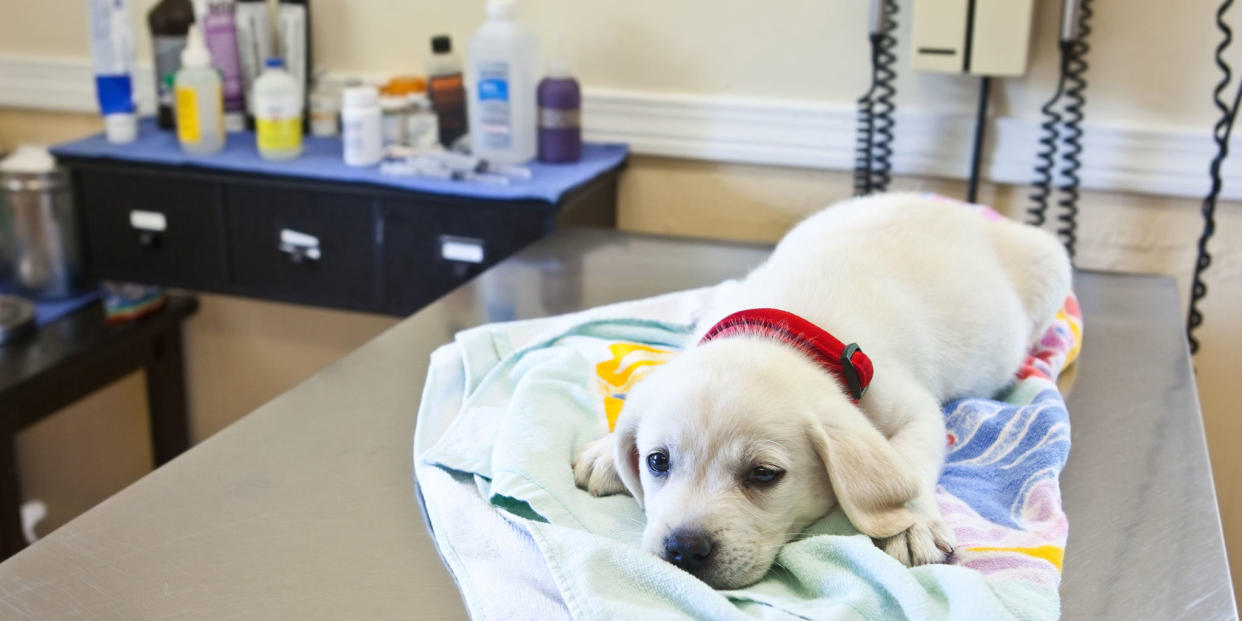The Dog Flu Is Spreading Across the Country for the First Time In Years

This year, the flu has certainly taken its toll. The virus has rapidly spread across the country and grown to epidemic levels, killing several young and healthy people along the way. And now there's even more bad news about this year's flu season: It's affecting pets, too.
Just like their owners, dogs across the country are coming down with flu-like symptoms due to widespread canine influenza. While it's a flu strain that's different than the one affecting humans (and there are no known cases of transmission), it's just as dangerous and even more contagious among dogs.
This season, the dog influenza virus has turned up everywhere from California to Washington to Pennsylvania and even in Canada, according to Newsweek. One San Francisco clinic saw 50 cases in just two weeks, and it's spreading to areas that haven't seen cases of the dog flu in years-or ever.
If it's not treated properly, the dog flu comes with a 10 percent mortality rate, according to the American Veterinary Medical Association. It can be fatal for cats, too. The viral infection is spread through barking, coughing, and sneezing when pets are in close contact with infected animals. It often spreads through kennels, dog shelters, groomers, and doggy day care centers.
"If the pets are unvaccinated, you definitely don't want to take them to daycare centers, kennels," Dr. Daniel Brauer, a vet at the Dayton South Veterinary Clinic, told WHIO News. "Your pet just needs to sniff it, and they will get it if they're not vaccinated."

Nearly all dogs exposed to the illness become infected, and 80 percent show symptoms like coughing, lethargy, fever, decrease appetite, and a running nose. In some of the worse cases, they can even develop pneumonia. If your furry friend shows any of these symptoms, they should be taken to the vet immediately to be given medical treatment.
You can protect your pup by disinfecting leashes, toys, water bowls, any other items that come in contact with other dogs, and by washing your hands as soon as you arrive home. And you should talk to your vet about the flu vaccine designed for canines. Experts say it's a "lifestyle vaccine" that may help, but it's not recommended for every dog.
(h/t Hello Giggles)
You Might Also Like

